Now, you didn't really think that we'd be able to go through this entire generation of consoles without getting at least one Dragon Ball Z game, did you? Those feelings of avoidance can be laid aside, as Dragon Ball Z: Burst Limit is a shining example that the gaming branch of this franchise is finally soaring in the right direction. Past games bearing the brand have always had a tragic history of suffering abuse at the merciless diction of the press, which has in effect inspired hateful mail from fans. Thankfully, Burst Limit offers a chance at peace through an in-depth fighting formula and superb graphics, creating a quality experience, albeit one marred by some rough edges in overall design.
The game is as already explained, a fighter (is there any better way to represent Dragon Ball Z?), and is divided up into the Z Chronicles campaign, various trail modes, and a versus mode that includes both local and online play. The Z Chronicles mode is your key to unlocking the fighters, special moves, and venues of Burst Limit, consisting of an amalgamation of the best fights seen in the series' history across three different sagas. The problem for those not in tune with the fiction is that they will be utterly left in the dark, since absolutely no context is given as to why who is fighting who. Adding to the confusion is the lack of a persistent protagonist to play as, causing you to be continually tossed around, sometimes playing as one of the good guys (Goku, Krillin) or the villains (Frieza, Raditz). I found this to not only be a cop-out to non-fans who may not be in the loop, but also refined DBZ followers, since clip shows are rarely a fan favorite. In short, the Z Chronicles feel more like a bonus mode, rather than an actual campaign.
But perhaps we're getting a little too caught up in plot details, as the story is never why people pick up the controller to play a fighting game, and on the gameplay front, Burst Limit delivers in full force. The main set of moves is simple, but there's a multitude of ways to modify them. The X button is used to block, while the Square button serves as your rush attack, and Triangle the heavy. Circle performs Ki blasts, which can be empowered further through super attacks or a special cinematic-fueled ultimate attack to be used when your constantly recharging Ki meter is full. Some of these moves involve Piccolo's Special Beam Cannon and Goku's Spirit Bomb. Each character has a varying ultimate attack that may be wiser to perform either up close or at long range, but regardless of who you're playing as, you can be assured that dudes hurling Ki blasts the size of small planets (literally, in one case) will always be present.
Ki isn't just used for throwing big glowing balls, however. Other attacks that make use of Ki include Aura moves that involve holding down R2 and Triangle to unleash a devastating heavy smash, or R2 and Circle for a defensive mega-crush when caught between a rock and a hardened opponent hungry to finish you off. Expanding on these abilities is Aura mode, where by pressing the L1 button once the Ki gauge is full, your character will become engulfed in a colorful flame, allowing you to launch your opponent into the air to continue the battle hovering in the clouds. This is a neat feature that lets things get way over the top (a trademark of the series), eventually sending the two of you into outer space, and then back down again to a completely different venue. While fun to watch, the same animations are sadly repeated every time you engage the attack, lessening the excitement after the first few play sessions.
One way in which Burst Limit tries to add for more depth, but fails, is with Drama Pieces. These unlockable events can help you out by either calling in a friend to deflect an attack, or boosting power and defensive abilities. The problem is that no player control exists to decide when or which of these pieces will be activated during a fight; you simply pick a set in the preceding menu and wait for them to be enabled when you need them. This detracts from any possible strategy the pieces may carry, and they are frequently activated immediately after an opposing character has just used their own, withdrawing any spontaneity that the designers may have hoped the undecided activation would achieve.
Although learning to manage all of this awesome power may take a few rounds or a visit to the game's tutorial mode, I found Burst Limit's fighting to be smooth, fair, and always intense. In order to compensate for all that energy getting hurled around, it is possible (if timed correctly) to dodge and even counter an enemy's Ki blast, placing your character right behind him for you to open up your own ultimate attack.
The Z Chronicles mode doesn't take that long to complete, but there are some trial modes available to entice you to hold off a little longer on trading in the game. Two of the trial options are fairly similar. Battle Point and Time Attack will each supply you with three different courses of 10 enemies that must be eliminated in either the best time (Time Attack) or with the most points amassed (Battle Point). It is possible to compare scores through the online leaderboards, but with only three variants each, both of the modes offer fairly limited replay value. Survival mode, on the other hand, pits you against 100 opponents in random order, creating a much longer lifespan. The one thing about the trial modes that will make the word "cheap" come to mind with a majority of players is that each mode must be played in order to unlock the next, adding a campaign-like progression to what is really an extra portion of the game where your options should be much more open.
The local section of versus mode does happily allow for a wealth of tweaks to any fight, such as round limit, CPU difficulty, specific health and defense handicaps, and the ability to turn off drama pieces. Versus also lets you build your fighter in a more comprehensive manner by selecting your own ultimate attacks and drama pieces that you've unlocked through Z Chronicles. Unfortunately, the variety starts to dwindle when heading online. Only minute options such as round numbers are available, even in player matches, so the only thing left to do is partake in straight one-on-one battles. The online feels extremely limited, without even a simple tournament or spectator mode to let in more than two players on the fun. Tack on lag as a frequent issue, and Burst Limit's only real multiplayer draw is in old-fashioned, couch-based contests.
By now, any DBZ fan reading this has probably been able to deduce, by some subtle inaccuracies on my part, that I'm not that well versed in the Dragon Ball universe. But even someone who isn't a fan of the series will be able to appreciate the sheer beauty of Burst Limit, which for the first time truly brings anime into the third dimension. All of the characters look like they were pulled straight out of a DBZ cartoon, but enhanced with bright, colorful 3-D models and surprisingly cinematic animations. And once you have two fighters duking it out while at the same time engulfed in a bright blue Aura flame, things start looking really pretty. The one downside to the game's visuals would have to be the venues, which are limited to only five arenas and despite different settings, such as grassy plains and rugged deserts, all come down to the same valley but with a different color palette.
Fans of the series will not only be happy with the visual representation of the DBZ universe, but also the sound. Voice actors from the North American version of the series all return, including Sean Schemmel, Brice Armstrong, and Christopher Sabat. All of the typical-sounding crashes and bashes that are usually found in an episode of DBZ are present in the game, giving that extra feeling of authenticity to every fight.
Dragon Ball Z: Burst Limit not only gives us a good visual representation of DBZ, but it also supplies a great core fighting mechanic that's easy to pick up, yet has loads of intricacies to learn (minus the slot machine-like drama pieces). It's just too bad that in this case, a DBZ game was finally able to achieve such enjoyable gameplay but the surrounding design was not taken further. A proper campaign is nonexistent, the trials won't stay entertaining for long, and the online mode is incredibly bare-bones. The core fighting essence is an undeniable blast and very true to the Dragon Ball universe by nature, but the lack of compelling gameplay modes to support it slightly restricts Burst Limit's appeal to the realm of fandom rather than the genre of the fighter.
Score: 7.8/10
More articles about Dragon Ball Z Burst Limit


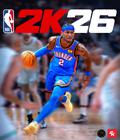
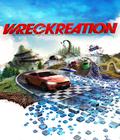

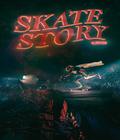



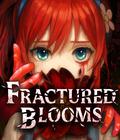

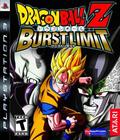 Burst Limit is similar to the DBZ: Budokai Tenkaichi series (published by Atari in Europe and North America) and has online multiplayer, is cut scene-driven and supports 16:9.
Burst Limit is similar to the DBZ: Budokai Tenkaichi series (published by Atari in Europe and North America) and has online multiplayer, is cut scene-driven and supports 16:9.


































